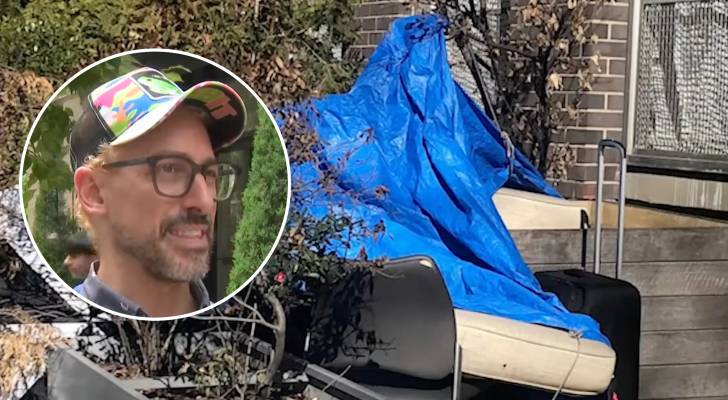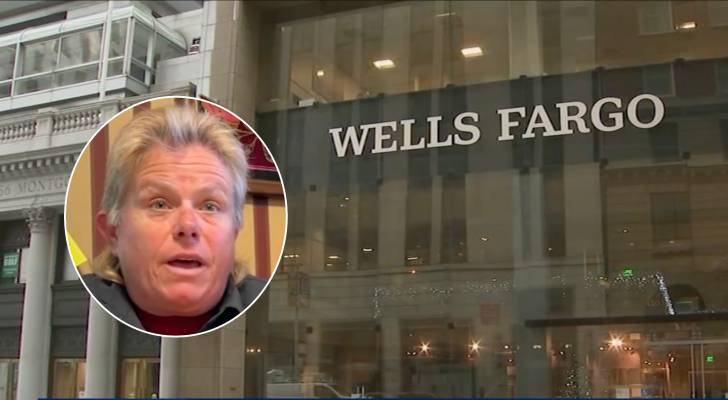Pittsburgh college student comes home after a month away to find 2 naked strangers in his apartment — why renters should always read closely before signing a contract


There’s nothing like coming home after a month away — unless you walk through the door and find two strangers living in your apartment. That’s what happened to Maverick Crupi, a University of Pittsburgh student. Don’t miss Thanks to Jeff Bezos, you can now become a landlord for as little as $100 — and no, […]
This NYC woman has turned sitting in a parked car into a savvy side hustle — but can her quirky solution for an urban headache help shift your own plans into gear?


Side hustles used to mean babysitting your neighbour’s kid or walking dogs for extra cash. Then came rideshares, delivery apps and reselling vintage Levi’s on Depop. But in New York, the hustle has officially entered its parked car era. Owning a car in New York City already comes with its own brand of chaos: gridlocked […]
Big Brother star’s real estate firm being sued in 11 states over claims of misleading agreements that cost homeowners thousands — why this type of contract is banned in more than 22 states


After turning heads on Big Brother, Amanda Zachman, the self-proclaimed villain of Season 15, stepped out of the spotlight and into real estate, founding brokerage firm MV Realty. But the controversy she stirred up on the small screen has followed her into her professional career. Don’t miss Thanks to Jeff Bezos, you can now become […]
‘They have more rights than we do’: NYC co-op residents frustrated as homeless encampment grows, reflecting city’s broader struggles with housing and public safety


What started as a makeshift shelter with tarps, umbrellas and wooden pallets has transformed into what residents are calling an actual house outside a Kips Bay co-op. Since February, board members at 311 East 25th Street in Kips Bay have been locked in a months-long standoff with an unhoused couple who created a semi-permanent encampment […]
Louisiana woman awarded $4,500 in civil suit after a mechanic dismantled her Volkswagen’s convertible top and returned it boxed up in pieces — how to avoid being taken for a ride


When you take your car in for repairs, you expect it to come back in better shape — not worse. But for Olivia Hayes of Baton Rouge, Louisiana, a simple fix turned into a months-long nightmare. In 2024, Hayes brought her 2010 Volkswagen EOS to a mechanic, hoping to finally repair the convertible top she’d […]
‘I’m just livid’: This California woman thought she was tipping $5 until she realized she’d entered $5,000 — only to be told it couldn’t be voided. What to do if it ever happens to you


Americans have long grumbled about tipping culture — but now digital checkout screens are turning that frustration into full-blown financial disasters. Sometimes, the issue isn’t just pressure to tip — it’s how easy it is to make a costly mistake. One in five Americans say they’ve accidentally tipped more than intended on digital checkout screens, […]
Realtors in this 1 US state issue ‘Taylor Swift Tax’ warning that stands to hit megastar, rich neighbors with an additional $136,000/year in taxes — here’s why it’s a problem


Closing on a home is already expensive, but new budget proposals in Rhode Island could drive costs even higher. The Rhode Island Association of Realtors is raising concerns, arguing two proposed tax changes would hit buyers and sellers hard, making the state’s fragile housing market even more unaffordable. Don’t miss Thanks to Jeff Bezos, you […]
Trump’s USDA just uncovered ‘one of the largest’ food stamp fraud, bribery schemes in US history — 6 arrested for alleged $66M in ‘unauthorized transactions’


The U.S. Department of Justice has charged six people — including a fraud investigator with the U.S. Department of Agriculture (USDA) — for allegedly orchestrating “one of the largest food stamp scams in U.S. history,” siphoning tens of millions from the Supplemental Nutrition Assistance Program (SNAP). According to the U.S. Attorney’s Office for the Southern […]
‘It was an eyesore’: City of Oakland clears homeless encampment, relocating 70 people to state-funded shelter — but advocates say crews moved too fast without offering sufficient supports


The City of Oakland has cleared a large homeless encampment on East 12th Street, relocating about 70 people to the Mandela House — a former hotel turned shelter, now funded through a state grant. The move marks one of the city’s most visible steps toward addressing homelessness, a crisis that has more than doubled in […]
California homeowner blames PG&E worker for sparking a fire that he says could have cost him everything — and it’s not the first time the utility giant has been at the center of a firestorm


Andres Montoya built a peaceful life on his five-acre property in San Martin, complete with horses, chickens, goats and the kind of rural calm you can’t put a price on. But that peace nearly went up in smoke after a fire broke out on his family’s property. Don’t miss Thanks to Jeff Bezos, you can […]
